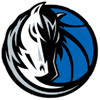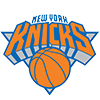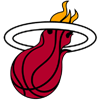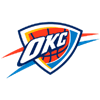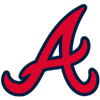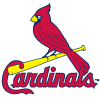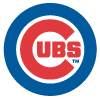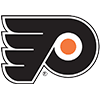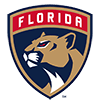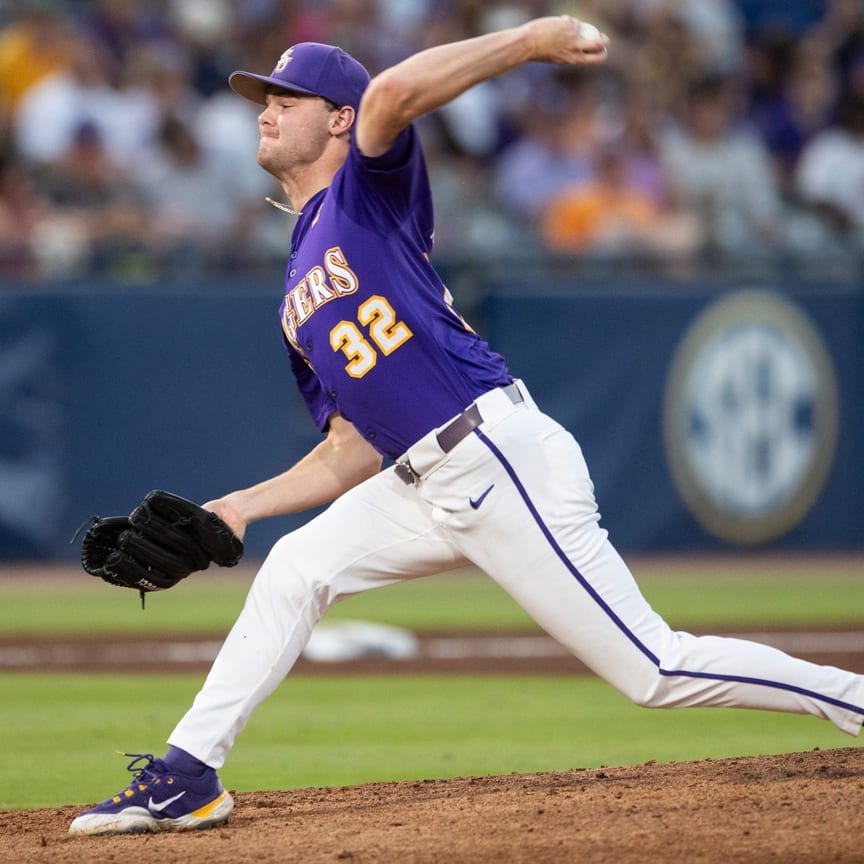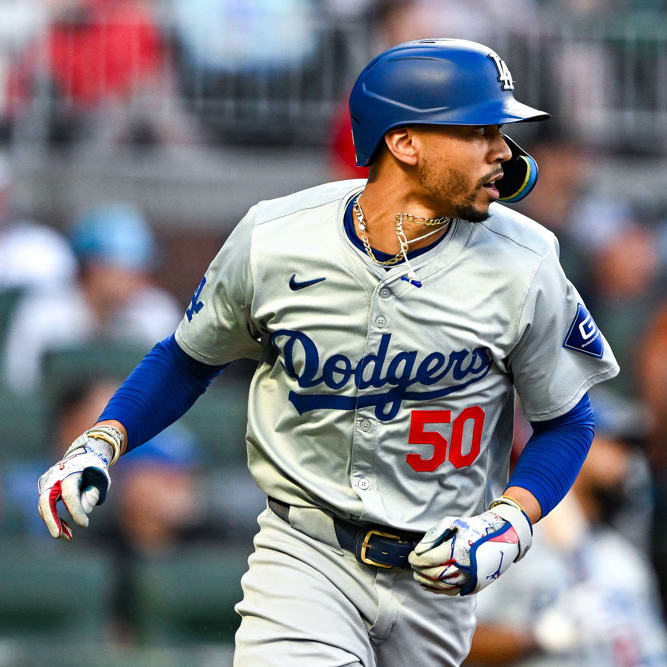It's time to look at the 2019 MLB season from a wagering perspective. I'm a big fan of the season win total bets ever since I started making them in person in Las Vegas in the late 1990s.
It's a good exercise before the start of each season not only to make predictions on where you think the teams will finish, but also test those against the conventional wisdom expressed through money wagered in sportsbooks.
Over the last 18 years, I've come out ahead. My overall record is 47 for 82 (with one push) for 57.3 percent. My best bet each season is 16-13 (I had multiple biggest bets some years). I'm a little better on bets of $100 or more (I vary my bet size to emphasize how strongly I feel about the pick) where I'm 13-9 (59.1 percent). I'm most impressive on a weighted or cash basis, where I've been correct 61.5 percent of the time ($3,075 in winning bets, $1,925 in losers - not factoring in the vig).
I finally had a good season last year after a recent slump (1-7 the past two years), winning all three of my bets. (under on Arizona, Detroit and San Diego).
When I started writing this story in 2000 my idea was to see if you could be successful on these bets by sticking to some basic principals similar to investing in the stock market. While all kinds of new data has emerged and the stock market has seen some
It's time to look at the 2019 MLB season from a wagering perspective. I'm a big fan of the season win total bets ever since I started making them in person in Las Vegas in the late 1990s.
It's a good exercise before the start of each season not only to make predictions on where you think the teams will finish, but also test those against the conventional wisdom expressed through money wagered in sportsbooks.
Over the last 18 years, I've come out ahead. My overall record is 47 for 82 (with one push) for 57.3 percent. My best bet each season is 16-13 (I had multiple biggest bets some years). I'm a little better on bets of $100 or more (I vary my bet size to emphasize how strongly I feel about the pick) where I'm 13-9 (59.1 percent). I'm most impressive on a weighted or cash basis, where I've been correct 61.5 percent of the time ($3,075 in winning bets, $1,925 in losers - not factoring in the vig).
I finally had a good season last year after a recent slump (1-7 the past two years), winning all three of my bets. (under on Arizona, Detroit and San Diego).
When I started writing this story in 2000 my idea was to see if you could be successful on these bets by sticking to some basic principals similar to investing in the stock market. While all kinds of new data has emerged and the stock market has seen some changes, the basic principles of Value Investing still work. Similarly, could we take basic sabrmetrical principles and apply them to the market and consistently win? As a result I've hesitated to add new metrics by diving into batted-ball data, Statcast metrics and WAR calculations. A few losing years had me questioning if the times have caught up with me, so it was good to have a bounceback season.
Back in 2000, finding the lines for these bets wasn't a trivial exercise. They were rarely online and few sportsbooks in Las Vegas posted season win totals (I had to trek to the dank sportsbook at the Imperial Palace). Today we're in a new world with the overturning of PASPA and every state free to legalize sports betting. My guess is that we'll see a lot more variations of ways to bet season win totals such as cashing out during the season and maybe someday taking the other side of the bet. We'll have to see if my methods hold up for the new offerings.
There's certainly a lot more media coverage of the win total lines as back in 2000 I was one of the few writing about them. Among the other great reads on the subject his year are Jonah Keri at TheAthletic, Aaron Gleeman at Baseball Prospectus and Joe Sheehan at his newsletter.
Here's my take on each team with more analysis below on those I selected as my "bets."
| 2018 Wins | 2019 over/under | 2019 book +/- | My Pick | |
|---|---|---|---|---|
| Arizona Diamondbacks | 82 | 75.5 | -6.5 | under |
| Atlanta Braves | 90 | 85.5 | -4.5 | over |
| Baltimore Orioles | 47 | 58.5 | 11.5 | under |
| Boston Red Sox | 108 | 95 | -13 | over |
| Chicago Cubs | 95 | 87.5 | -7.5 | over |
| Chicago White Sox | 62 | 73.5 | 11.5 | under |
| Cincinnati Reds | 67 | 78.5 | 11.5 | under |
| Cleveland Indians | 91 | 90.5 | -0.5 | over |
| Colorado Rockies | 91 | 84.5 | -6.5 | over |
| Detroit Tigers | 64 | 67.5 | 3.5 | under |
| Houston Astros | 103 | 96.5 | -6.5 | over |
| Kansas City Royals | 58 | 69.5 | 11.5 | under |
| Los Angeles Angels | 80 | 82.5 | 2.5 | under |
| Los Angeles Dodgers | 92 | 93.5 | 1.5 | over |
| Miami Marlins | 63 | 63.5 | 0.5 | over |
| Milwaukee Brewers | 96 | 86.5 | -9.5 | over |
| Minnesota Twins | 78 | 84.5 | 6.5 | over |
| New York Mets | 77 | 85.5 | 8.5 | over |
| New York Yankees | 100 | 96.5 | -3.5 | over |
| Oakland Athletics | 97 | 83.5 | -13.5 | over |
| Philadelphia Phillies | 80 | 88.5 | 8.5 | over |
| Pittsburgh Pirates | 82 | 78.5 | -3.5 | under |
| San Diego Padres | 66 | 77.5 | 11.5 | under |
| San Francisco Giants | 73 | 73.5 | 0.5 | under |
| Seattle Mariners | 89 | 72.5 | -16.5 | under |
| St. Louis Cardinals | 88 | 88.5 | 0.5 | over |
| Tampa Bay Rays | 90 | 84.5 | -5.5 | over |
| Texas Rangers | 67 | 70.5 | 3.5 | under |
| Toronto Blue Jays | 73 | 74.5 | 1.5 | under |
| Washington Nationals | 82 | 88.5 | 6.5 | over |
For this exercise, I'm using Odds from FanDuel Sportsbook which I grabbed on March 20.
When I look at a upcoming baseball season, there are eight methods I use to judge which teams might be a good bet: Three are statistical, four are observations I've had watching the bookies set season-long lines for MLB and other sports and lately I've thrown in a wild card pick with no particular theoretical basis. Here's the breakdown on these theories and the teams I decided to actually wager on.
The Johnson Effect
The Johnson Effect argues that a team that scores more runs or allows fewer runs than most statistical formulas would suggest, is bound to regress the next season. For example, if one team scores more runs than sabrmetrical formulas such as Runs Created or OPS might suggest, then it will score less the next season. The theory works based on the fact that sometimes a team has more success than it should just based on pure luck. A bad bounce here, a fluke play here - they can add up in one season and make a team look more powerful than it should be.
My favorite type of statistic for this analysis is a tool called the Pythagorean Theory. You probably learned the Pythagorean theory in trigonometry, but in baseball it means that the ratio of a team's wins and losses will be similar to the relationship between the square of its runs scored and the square of its runs allowed. If the runs a team scores and gives up in any given season don't translate into the expected win total from the Pythagorean Theory, that means something odd took place that should turn around next season.
Using the Johnson Effect and applying the Pythagorean Theory, who looks like they'll rebound in 2019? Here are the top teams that should have seen more or less wins based on their 2018 runs allowed/created than they actually tallied:
| Seattle Mariners | +11 |
| Colorado Rockies | +6 |
| Baltimore Orioles | -8 |
| Washington Nationals | -8 |
| Los Angeles Dodgers | -10 |
I usually like to look for teams that have a differential of 10 or more games. The Mariners are an easy target to decline since they've decided to rebuild, trading away Robinson Cano, Edwin Diaz, Jean Segura, James Paxton. The fact that they likely overachieved last season based on their Pythagorean number adds to their diminished outlook. Unfortunately the sportsbooks also agree as they're seen declining by 16.5 wins. I don't see a lot of value as a result.The Dodgers won 92 games last year, but were seen underperforming by this metric. They've averaged 94 wins the past six seasons, but have only finished above their 2019 over/under total of 93.5 just twice (102 wins in 2017, 94 in 2014). I don't see a great value with the Dodgers either.
The Plexiglas Principle
This theory says that any team that improves dramatically in one season is likely to decline the next season.
What teams made such dramatic moves from 2017 to 2018?
| Oakland Athletics | +22 |
| Atlanta Braves | +18 |
| Boston Red Sox | +15 |
| Philadelphia Phillies | +14 |
| Seattle Mariners | +11 |
| Tampa Bay Rays | +10 |
| Milwaukee Brewers | +10 |
Since 1970, teams that have improved by 19 or more games declined by 7.2 wins the following season. The decline is even sharper for teams that have improved by 22 or more games (-10.68 games). Unfortunately the sportsbooks agree and have the A's declinning by 13.5 games in 2019. That drop may be too far, but I think the risk is too much to the downside with their thin starting pitching staff despite some young hitters who could improve dramatically. Atlanta could also take a step back before it becomes a regular contender after last year's breakout season. However, they feature a young core and have a pletheora of young arms and could even improve despite a tough division. I don't see a lot of value either way in a projected -4.5 decline.
The Reverse Plexiglas Principle
When a team has consistently been a winner and then experiences a sudden drop off, there is a strong likelihood that its win total will rebound. Or at least that's my theory. I haven't had a lot of success with this bet (1 for 4).
Here are the teams that declined the most in 2018:
| Arizona Diamondbacks | -11 |
| Cleveland Indians | -11 |
| Texas Rangers | - 11 |
| Los Angeles Dodgers | -12 |
| Miami Marlins | -14 |
| Washington Nationals | -15 |
| Kansas City Royals | -22 |
| Baltimore Orioles | -28 |
The Nationals, Indians and Dodgers are the three teams that fit the mold. The Dodgers we can write off a bit just because they won 104 games in 2017 and some regression may have been expected. The Indians didn't add much in the offseason, so they seem a candidate to decline more than improve.
The Nationals seem the best fit. Yes, they lost Bryce Harper to the Phillies. But they added veterans in Brian Dozier, Patrick Corbin, Trevor Rosenthal and Yan Gomes, feature some of the best young hitters in the game in Juan Soto and Victor Robles, and still employ arguable the best pitcher in the game in Matt Scherzer. Before last year's vexing decline, the Nationals had won 95 or more games three of the last four seasons. The Sportsbooks only have them improving 6.5 games. I think they're a good bet to win 90+ games again. I'll bet $25 the Nationals win more than 88.5 games.
The last thing I look at is what teams the bookies think will have the biggest improvement or decline.
The Bottom Feeder Bet
This is totally from a non-scientific study of watching the bookies set the lines on expected wins over the years. People tend to care less about the bad teams in any sport, so the line is set a bit lower to entice folks to bet on these doormats. I've won 6 of 9 bets since 2001 with this theory. Let's look at this year's candidates.
| Seattle Mariners | 72.5 |
| Texas Rangers | 70.5 |
| Kansas City Royals | 69.5 |
| Detroit Tigers | 67.5 |
| Miami Marlins | 63.5 |
| Baltimore Orioles | 58.5 |
The Orioles won just 47 game last season, finishing a record 61games out of first place. The Buck Showalter (manager) and Dan Duquette (GM) era ended with new management put in place in the offseason. Not much help is on the way as Baltimore's farm system is ranked last in the majors by ESPN's Keith Law. It's no surprise that they're the lowest projected win total on the board. In fact, it's tied with the 2013 Astros as the lowest offered by oddsmakers since I've been tracking these odds in 2001.
The sportsbooks have the Orioles improving by 11 games, likely just because of regression to the mean. It's difficult for any team to lose more than 100 or win more than 100 games. If recent history is any indication, however, the idea that a very bad team will automatically get better isn't warranted. Since 2001 there have been four teams projected by oddsmakers to win fewer than 64 games. Three of those teams won fewer games the next season for an average decline of 2.3 games.The 2012 Astros may be a good parallel. After a modest run of success the previous decade, a 100-loss season finally resulted in a new GM and manager. Jeff Luhnow inherited a terrible farm system and spent the first two seasons rebuilding and generally not caring about wins. The Astros finished under the sportsbooks' low expectations each year. Houston's commitment to fully "tank" is now the model every team is seemingly trying to emulate – to the point where many say only half the league is even trying each season. The Orioles likely need to get worse before getting better. I'll wager $50 that Baltimore wins fewer than 58.5 games.
The Book's Biggest Movers
| Cincinnati Reds | 11.5 |
| San Diego Padres | 11.5 |
| Chicago White Sox | 11.5 |
| Kansas City Royals | 11.5 |
| Baltimore Orioles | 11.5 |
| Milwaukee Brewers | -9.5 |
| Boston Red Sox | -13 |
| Oakland Athletics | -13.5 |
| Seattle Mariners | -16.5 |
I've already talked about the Mariners and A's (and considering their season's have already begun, they're likely off the board in most sportsbooks) and how their declines are too in line with the movement in their odds for value.
I think all five teams expected to improve by more than 10 games may be a reach. The Reds did add significant upgrades to their lineup and have a number of young hitting prospects, even if the pitching is still suspect. The trend is upward, so I'll pass on a bet. The Padres did add one of the best players in the game in Manny Machado and have a lot of prospects on the cusp of contributing. The White Sox have a number of prospects also on the cusp of contributing, including Eloy Jimenez who may now be in the majors on Opening Day due to a new contract. I think a jump of more than ten games for either franchise is too much, but I'm not confident enough to make a bet.
The Royals on the other hand are still rebuilding and may need to get worse before they get better. Most of the veterans they acquired are underwhelming (Jake Diekman, Drew Storen and Brad Boxberger and Billy Hamilton) and the starting rotation figures to be one of the worst in baseball. And while their farm system isn't as terrible as some rebuilding teams (21st per ESPN's Law), most of the top prospets are in the lower minors. I'll bet $25 the Royals don't win 69.5 games.
The Book's Non Movers
| Texas Rangers | 3.5 |
| Detroit Tigers | 3.5 |
| Los Angeles Angels | 2.5 |
| Los Angeles Dodgers | 1.5 |
| Toronto Blue Jays | 1.5 |
| St. Louis Cardinals | 0.5 |
| San Francisco Giants | 0.5 |
| Miami Marlins | 0.5 |
| Cleveland Indians | -0.5 |
| New York Yankees | -3.5 |
| Pittsburgh Pirates - | 3.5 |
Basically, the sportsbooks have a lot of teams they think will stay the same. It was similar last year when the sportsbooks projected 15 teams within 3.5 games of their previous year's record. Only 3 of those 15 teams finished within 3.5 games of their projection (though collectively they were only 1.87 wins under their line).
One team that stands out for me on this list is the San Francisco Giants. The Giants improved to 73 wins from 64 wins in 2017. However, the Giants feature an aging core that's far past its prime. New GM Farhan Zaidi is likely to tear down the roster in an effort to rebuild. I'd be shocked if any veteran having a good year, other than Buster Posey, isn't traded for prospects. Meanwhile, the Giants have the 26th best farm system according to ESPN's Law with most of it's strenght in the lower minors, so reinforcements are not on the way. I'll wager $50 the Giants win fewer than 73 games.
Similarly, the Rangers and Blue Jays are rebuilding and likely to be worse before they're better. Toronto gives me pause on taking the under since at some point top prospect Vladimir Guerrero Jr. will be in the majors after he overcomes a oblique injury and manipulation of his service time to get another year of team control. Since many peg him as an immediate top-20 hitter in MLB, he could help slow Toronto's decline. The Rangers however are another team rebuilding that likely needs to get worse before it gets better. Offseason signings of Lance Lynn, Hunter Pence, Logan Forsythe and Ben Revere are not exactly inspiring. The farm system ranks 20th (via Law again) but most of the best are in the lower minors. I'll bet $25 the Rangers don't win 70 games.
Wild Card
Last year I thought a good bet, if anyone would offer it, would be to take the over on a combined 300 wins from the Astros, Red Sox and Yankees (or maybe it was the Indians. Either way, you won.). There's such a divergence in the AL, where arguably only eight teams are trying to win and seven teams are rebuilding or directionless. As a result the large gaps between the top and bottom of the league may continue.
I'd almost advocate a parlay of the over of the Astros, Red Sox and Yankees or maybe all eight teams (though I'm likely down on the Angels chances). Of course a parlay is always a bad bet since you don't get true odds, but the theory holds that it's better to take the over on the top of the league given the paucity of the bottom of each division.
To recap, here are my bets for 2018.
| TEAM | BET | THEORY |
|---|---|---|
| Kansas City Royals | $50 on less than 69.5 wins | Book Mover |
| San Francisco Giants | $50 on less than 73 wins | Book Non Mover |
| Texas Rangers | $25 on less than 70 games | Book Non Mover |
| Baltimore Orioles | $50 on less than 58.5 wins | Bottom Feeder |
| Washington Nationals | $25 more than 88.5 games | Reverse Plexiglas Principle |
One note: My bets/track record doesn't try to account for the variations in extra juice you need to pay. Most lines are -110, meaning the sportsbook takes about five percent on each bet. The "Vig" tends to be higher on these bets than for single games. Sometimes the vig can vary widely, such as when 2016 Texas Rangers under of 83.5 wins was at -140 (the under was +110). It's another method for the bookmakers to alter how the money is coming in on each side so it gets to their comfort level. Or it's a way to change the odds without moving the win total.
If you are making a lot of bets, this is a serious factor in the math. But I don't bother to take that into account because I'm more focused on the overall wins number for a team perspective. Plus, I forget to keep track of the Vig in early years.
I vary the dollar amounts below as a way to show how confident I am in the bet (the $300 bet on the 2004 Royals is my all-time high), so there are some holes in the math if you added in all the varying vigs.
And why should you care what I think? I've made money 10 of the last 18 years (with one push). Here's the breakdown:
| YEAR | W/L | TEAM | BET | THEORY |
|---|---|---|---|---|
| 2018 | Won | Arizona Diamondbacks | $100 to win fewer than 85 games | Plexiglas Principle |
| 2018 | Won | Detroit Tigers | $50 on less than 66.5 wins | Book's Non Movers |
| 2018 | Won | San Diego Padres | $25 on less than 72.5 games | Johnson Effect |
| 2017 | Won | Tampa Bay Rays | $50 win more than 78.5 games | Johnson Effect |
| 2017 | Lost | Pittsburgh Pirates | $100 win more than 82 games | Reverse Plexiglas |
| 2017 | Lost | Los Angeles Angels | $50 on less than 79 wins | Book's Non Movers |
| 2017 | Lost | Texas Rangers | $25 on win more than 84.5 games | Book's Biggest Movers |
| 2017 | Lost | Baltimore Orioles | $50 win more than 80 games | Wild Card |
| 2016 | Lost | Chicago Cubs | $25 win less than 93.5 games | Plexiglas Principle |
| 2016 | Lost | Milwaukee Brewers | $50 win less than 70 games | Bottom Feeder Bet |
| 2016 | Lost | New York Yankees | $25 win over than 85 games | Wild Card |
| 2015 | Lost | Houston Astros | $25 win less than 75.5 games | Plexiglas Principle |
| 2015 | Won | Los Angels Angels | $25 win less than 88.5 games | Plexiglas Principle |
| 2015 | Won | Texas Rangers | $25 win over than 76.5 games | Reverse Plexiglas Principle |
| 2015 | Lost | Boston Red Sox | $25 win over than 86.5 games | Reverse Plexiglas Principle |
| 2015 | Lost | Baltimore Orioles | $75 win over than 82.5 games | Book's Biggest Movers |
| 2015 | Won | Cincinnati Reds | $25 win less than 77.5 games | Book's Non Movers |
| 2015 | Won | Tampa Bay Rays | $50 win more than 78.5 games | Book's Non Movers |
| 2015 | Won | Oakland A's | $100 win more than 81.5 games | Billy Beane Theory |
| 2014 | Lost | Cleveland Indians | $25 win less than 82 games | Plexiglas Principle |
| 2014 | Won | Houston Astros | $25 more than 62.5 games | Bottom Feeder |
| 2014 | Won | Philadelphia Phillies | $50 under on 74.5 games | Book Non Mover |
| 2014 | Won | Oakland A's | $25 over on 86.5 games | Billy Beane Theory |
| 2014 | Lost | Tampa Bay Rays | $100 over on 89 games | Billy Beane Theory |
| 2013 | Won | Toronto Blue Jays | $50 under on 89 games | Book Mover |
| 2013 | Won | Oakland A's | $25 over on 84.5 games | Billy Beane Theory |
| 2013 | Won | Tampa Bay Rays | $50 over on 86.5 games | Billy Beane Theory |
| 2013 | Lost | Kansas City Royals | $50 under on 78.5 games | Billy Beane Theory |
| 2013 | Won | Baltimore Orioles | $25 over on 78.5 games | Wildcard |
| 2012 | Won | Arizona Diamondbacks | $200 under on 86 games | Plexiglas Principle |
| 2012 | Lost | Minnesota Twins | $100 over on 72.5 games | Reverse Plexiglas Principle |
| 2011 | Lost | Kansas City | $100 under on 68 games | Book Non Mover |
| 2011 | Won | Houston Astros | $50 under on 72 games | Johnson Effect |
| 2011 | Won | Milwaukee Brewers | $25 over on 86.5 games | Book Mover |
| 2011 | Lost | Los Angeles Angels | $50 under on 82.5 games | Wild Card |
| 2010 | Lost | Houston Astros | $150 under on 75.5 games | Johnson Effect & Book Non Mover |
| 2010 | Won | Minnesota Twins | $100 over on 82.5 games | Wildcard |
| 2010 | Won | Washington Nationals | $50 under on 72 games | Book Mover |
| 2009 | Lost | Los Angeles Angels | $50 under on 88.5 wins | Johnson Effect & Plexiglas Principle |
| 2009 | Won | Detroit Tigers | $50 over on 81.5 wins | Reverse Plexiglas |
| 2009 | Lost | Baltimore Orioles | $50 over on 72.5 wins | Bottom Feeder |
| 2009 | Lost | Kansas City Royals | $25 over on 76.5 wins | Book Non Mover |
| 2009 | Lost | Philadelphia Phillies | $50 under on 88.5 wins | Book Non Mover |
| 2009 | Lost | Oakland A's | $25 over on 82.5 wins | Billy Beane Theory |
| 2008 | Won | Seattle Mariners | $200 under on 84 wins | Johnson Effect |
| 2008 | Lost | Chicago Cubs | $50 under on 87.5 wins | Plexiglas Principle |
| 2008 | Won | Oakland A's | $50 over on 73.5 wins | Reverse Plexiglas Principle |
| 2008 | Push | San Francisco | $50 under on 72 wins | Book Non Mover |
| 2007 | Won | Cleveland Indians | $50 over on 85.5 wins | Johnson Effect |
| 2007 | Lost | Chicago Cubs | $50 under on 83.5 wins | Book Mover |
| 2007 | Lost | Oakland A's | $50 over on 85.5 wins | Book Mover |
| 2007 | Lost | Minnesota Twins | $100 over on 84 wins | Book Mover |
| 2007 | Won | Arizona Diamondbacks | $100 over on 78.5 wins | Book Non Mover |
| 2006 | Won | Chicago White Sox | $100 under on 92 wins | Johnson Effect & Plexiglas Principle |
| 2006 | Lost | Arizona Diamondbacks | $25 under on 73 wins | Johnson Effect & Plexiglas Principle |
| 2006 | Lost | Tampa Bay Devil Rays | $100 over on 68 wins | Bottom Feeder |
| 2006 | Lost | Milwaukee Brewers | $50 over on 81 wins | Book Non Mover |
| 2006 | Won | Minnesota Twins | $50 over on 83 wins | Book Non Mover |
| 2005 | Won | New York Yankees | $150 under on 102 wins | Johnson Effect |
| 2005 | Won | Milwaukee Brewers | $50 over on 69.5 wins | Bottom Feeder |
| 2005 | Won | San Diego Padres | $25 under on 86.5 wins | Plexiglas Principle |
| 2005 | Lost | Minnesota Twins | $25 over on 89.5 wins | Book Non Mover |
| 2004 | Won | Kansas City Royals | $300 under on 81 wins | Plexiglas Principle |
| 2004 | Won | Houston Astros | $50 over on 91 wins | Johnson Effect |
| 2004 | Lost | Detroit Tigers | $100 under on 66.5 wins | Book Mover |
| 2004 | Won | San Francisco Giants | $50 over on 85 wins | Book Mover |
| 2004 | Won | Florida Marlins | $50 over on 83 wins | Book Mover |
| 2003 | Won | Anaheim Angels | $100 under on 91 wins | Plexiglas Principle |
| 2003 | Won | Oakland A's | $50 over on 93.5 wins | Book Mover |
| 2003 | Won | New York Mets | $50 under on 86 wins | Book Mover |
| 2003 | Won | Toronto Blue Jays | $50 over on 79 wins | Book Non Mover |
| 2003 | Won | Boston Red Sox | $50 over on 91 wins | Johnson Effect |
| 2002 | Won | Oakland A's | $200 over on 90.5 wins | Book Mover |
| 2002 | Won | Philadelphia Phillies | $100 under on 82.5 wins | Plexiglas Principle |
| 2002 | Won | Pittsburgh Pirates | $50 over on 68 wins | Bottom Feeder |
| 2002 | Lost | Seattle Mariners | $50 over on 94 wins | Reverse Plexiglas Principle |
| 2002 | Lost | Colorado Rockies | $50 over on 77 wins | Johnson Effect |
| 2002 | Lost | New York Yankees | $50 under on 99 wins | Reverse Bottom Feeder |
| 2001 | Lost | St. Louis Cardinals | $100 under on 89.5 wins | Plexiglas Principle |
| 2001 | Won | Chicago White Sox | $100 under on 88 wins | Plexiglas Principle |
| 2001 | Won | Houston Astros | $100 over on 82.5 wins | Johnson Effect & Plexiglas Principle |
| 2001 | Won | Philadelphia Phillies | $25 over on 74.5 wins | Bottom Feeder & Johnson Effect |
| 2001 | Won | Minnesota Twins | $25 over on 73 wins | Bottom Feeder |
| 2000 | Won | Arizona Diamondbacks | $100 under on 93 wins | Plexiglas Principle |
| 2000 | Won | Minnesota Twins | $100 over on 64 wins | Bottom Feeder |








